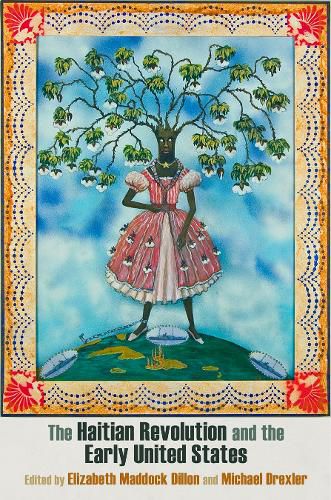Readings Newsletter
Become a Readings Member to make your shopping experience even easier.
Sign in or sign up for free!
You’re not far away from qualifying for FREE standard shipping within Australia
You’ve qualified for FREE standard shipping within Australia
The cart is loading…






When Jean-Jacques Dessalines proclaimed Haitian independence on January 1, 1804, Haiti became the second independent republic, after the United States, in the Americas; the Haitian Revolution was the first successful antislavery and anticolonial revolution in the western hemisphere. The histories of Haiti and the early United States were intimately linked in terms of politics, economics, and geography, but unlike Haiti, the United States would remain a slaveholding republic until 1865. While the Haitian Revolution was a beacon for African Americans and abolitionists in the United States, it was a terrifying specter for proslavery forces there, and its effects were profound. In the wake of Haiti’s liberation, the United States saw reconfigurations of its geography, literature, politics, and racial and economic structures.
The Haitian Revolution and the Early United States explores the relationship between the dramatic events of the Haitian Revolution and the development of the early United States. The first section, Histories, addresses understandings of the Haitian Revolution in the developing public sphere of the early United States, from theories of state sovereignty to events in the street; from the economic interests of U.S. merchants to disputes in the chambers of diplomats; and from the flow of rumor and second-hand news of refugees to the informal communication networks of the enslaved. The second section, Geographies, explores the seismic shifts in the ways the physical territories of the two nations and the connections between them were imagined, described, inhabited, and policed as a result of the revolution. The final section, Textualities, explores the wide-ranging consequences that reading and writing about slavery, rebellion, emancipation, and Haiti in particular had on literary culture in both the United States and Haiti.
With essays from leading and emerging scholars of Haitian and U.S. history, literature, and cultural studies, The Haitian Revolution and the Early United States traces the rich terrain of Haitian-U.S. culture and history in the long nineteenth century.
Contributors: Anthony Bogues, Marlene Daut, Elizabeth Maddock Dillon, Michael Drexler, Laurent Dubois, James Alexander Dun, Duncan Faherty, Carolyn Fick, David Geggus, Kieran Murphy, Colleen O'Brien, Peter P. Reed, Sian Silyn Roberts, Cristobal Silva, Ed White, Ivy Wilson, Gretchen Woertendyke, Edlie Wong.
$9.00 standard shipping within Australia
FREE standard shipping within Australia for orders over $100.00
Express & International shipping calculated at checkout
When Jean-Jacques Dessalines proclaimed Haitian independence on January 1, 1804, Haiti became the second independent republic, after the United States, in the Americas; the Haitian Revolution was the first successful antislavery and anticolonial revolution in the western hemisphere. The histories of Haiti and the early United States were intimately linked in terms of politics, economics, and geography, but unlike Haiti, the United States would remain a slaveholding republic until 1865. While the Haitian Revolution was a beacon for African Americans and abolitionists in the United States, it was a terrifying specter for proslavery forces there, and its effects were profound. In the wake of Haiti’s liberation, the United States saw reconfigurations of its geography, literature, politics, and racial and economic structures.
The Haitian Revolution and the Early United States explores the relationship between the dramatic events of the Haitian Revolution and the development of the early United States. The first section, Histories, addresses understandings of the Haitian Revolution in the developing public sphere of the early United States, from theories of state sovereignty to events in the street; from the economic interests of U.S. merchants to disputes in the chambers of diplomats; and from the flow of rumor and second-hand news of refugees to the informal communication networks of the enslaved. The second section, Geographies, explores the seismic shifts in the ways the physical territories of the two nations and the connections between them were imagined, described, inhabited, and policed as a result of the revolution. The final section, Textualities, explores the wide-ranging consequences that reading and writing about slavery, rebellion, emancipation, and Haiti in particular had on literary culture in both the United States and Haiti.
With essays from leading and emerging scholars of Haitian and U.S. history, literature, and cultural studies, The Haitian Revolution and the Early United States traces the rich terrain of Haitian-U.S. culture and history in the long nineteenth century.
Contributors: Anthony Bogues, Marlene Daut, Elizabeth Maddock Dillon, Michael Drexler, Laurent Dubois, James Alexander Dun, Duncan Faherty, Carolyn Fick, David Geggus, Kieran Murphy, Colleen O'Brien, Peter P. Reed, Sian Silyn Roberts, Cristobal Silva, Ed White, Ivy Wilson, Gretchen Woertendyke, Edlie Wong.